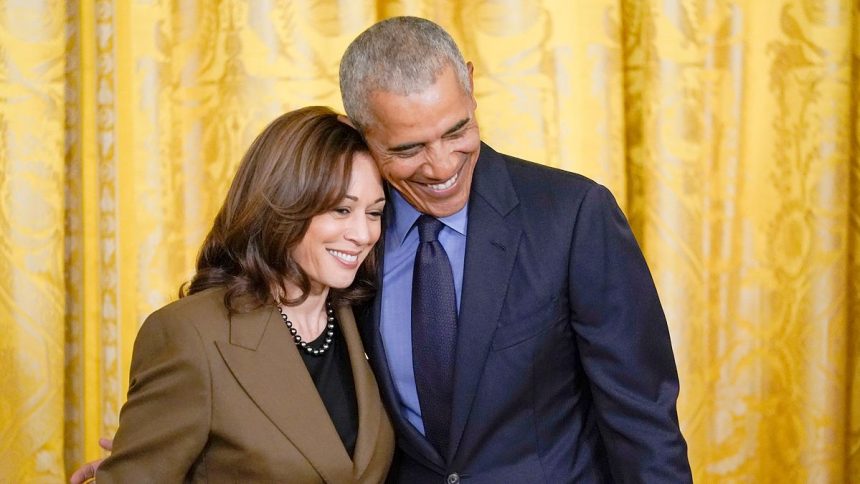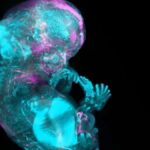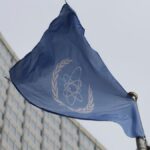Donald Trump has a long history of baselessly claiming his political opponents are ineligible for election — and some of his supporters are making similar false claims about Kamala Harris.
A group known as the National Federation of Republican Assemblies has launched a long-shot effort to delegitimise Harris’ candidacy on the basis that her parents were not themselves citizens at the time of her birth.
The federation has adopted this theory as its official position — and in doing so, it cited the infamous 1857 Dred Scott case, in which the Supreme Court found that enslaved people were not citizens of the US and thus not entitled to constitutional protections.
“Several states, candidates, and major political parties have ignored this fundamental presidential qualification, including candidates Nikki Haley, Vivek Ramaswamy, and Kamala Harris whose parents were not American citizens at the time of their birth,” the federation argues in its official position, pointing to two former Republican candidates alongside the current Democratic nominee.
There is no realistic prospect that Harris will fall foul of this legal argument, which relies on a highly unorthodox reading of the “natural born citizen” clause of the US Constitution’s first amendment:
“No person except a natural born citizen, or a citizen of the United States, at the time of the adoption of this constitution, shall be eligible to the office of president; neither shall any person be eligible to that office who shall not have attained to the age of thirty-five years, and been fourteen years a resident within the United States.”
Harris meets this standard in every way. Nonetheless, Trump and others have begun to raise spurious questions about her identity — the former president has falsely claimed that she had “turned black” after years of supposedly “pretending” to be Indian — while he and various other Republicans repeatedly mispronounce her first name, emphasising that she is not from a European-American background.
This is a callback to the so-called “birther” panic of the 2010s, a phenomenon that Trump used to move himself into the political arena.
A question of breeding
In the 2010s, long before he ran for president, Trump became the US’ loudest exponent of an unfounded theory that Barack Obama was born in Kenya, meaning that he was excluded from running for the presidency under the natural-born-citizen clause.
A claim that Obama was born in Kenya, not the US, took hold among right-wing media and grassroots activists well before Trump and others picked it up. So-called “birthers” claimed the president had concealed the truth and that he needed to provide hard proof of his birthplace to be accepted as a legitimate preference.
- Who is Tim Walz, Kamala Harris’ running mate?
- Five key takeaways from Kamala Harris’s DNC speech
This was often combined with a false claim that Obama was secretly Muslim, a notion that drew on a picture of him visiting Kenya in 2006 and his middle name, Hussein.
In reality, Obama was able to present his birth certificate and his citizenship was never doubted by anyone in the political mainstream. Trump, however, banged the drum for several years.
In 2011, Obama used his appearance at the annual White House Correspondents’ Association dinner to ridicule Trump for his obsession with the birther theory while Trump himself was seated in the audience.
In the light of Trump’s explicit and continuing personal hatred of Obama, this incident is often held up as a precipitating moment that encouraged Trump to finally run for president after years of considering it.
Obama’s 2008 election rival, John McCain, was also briefly the subject of questions about his eligibility because he was born not in the US per se but in the Panama Canal Zone, then under US control.
In his case, the discussion did not revolve around a discredited theory with xenophobic and anti-Muslim overtones but a somewhat arcane debate over whether the natural-born-citizen clause applied to people born within the zone at the time of McCain’s birth because it was under US jurisdiction at the time.
But unlike with Obama, who had to endure conspiracy theories about his biography throughout his presidency, it quickly became clear there was no appetite to chase McCain off the ballot over a technicality or bring his identity into question.
Euronews










